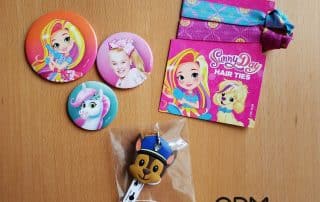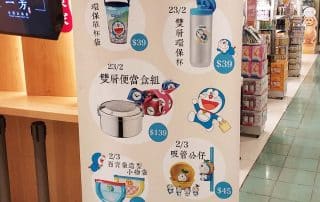In business, there is no such thing as stagnant. You either go up or down. However, there is another way to grow your business which is sideways. If you’re looking for a way to widen your market without pooling up money to set up another team or department for it, the best way is to go into a product licensing agreement.
A product licensing agreement is a legal contract between two parties: the licensor and the licensee. The licensor or the property owner gives permission to another party or the licensee to use their brand, patent, or trademark.
In exchange, the licensee usually submits to a series of conditions regarding the use of the licensor’s property and agrees to make payments known as royalties.
Product Licensing Agreement: Why You Should Do It and The Risks You Should Consider
There are two sides to everything and that goes for businesses too. Inherent risks always come alongside the advantages of a product licensing agreement.
We compiled some of them here for you.
-
Market
For both the licensor and the licensee, a licensing agreement means tapping into a market they haven’t ventured into. Especially in the international market. A product license agreement enables both parties to expand internationally and release promotional licensed merchandise without added tariffs.
However, for a licensor, they are risking competition in a market they might try to enter in the future. And in an increasing e-commerce platform, the lines can be blurry.
-
Reputation
A product licensing agreement lets two parties be associated with each other. Both parties are being exposed to certain markets that are out of their reach before. It increases brand visibility and exposure. Consequently creating traffic that turns into sales.
On the flip side, both parties can also suffer potential reputation damage if either one of the parties makes a mistake in managing, marketing or production.
-
Finance
Entering a product licensing agreement means a licensor doesn’t have to incur the cost of producing branded merchandise and still receives profit. Similarly, the licensee doesn’t have to pool resources for the research and creation of merchandise.
The downside of this, despite reducing the risks for both parties, is still no guarantee of revenue.
-
Core Business
A business’ core business is its main activity that generates profit. To a licensor, it is their brand, trademark or patent that earns them royalties. To a licensee, it’s the sales from the branded merchandise they produced.
Since both parties already reduced their cost of product production and development, the profit is already doubled.
On the other hand, for a licensor, there is also a risk of IP theft. Usage of licensor’s IP to merchandise or market that is not included in the product licensing agreement means the licensor doesn’t get royalties on that merchandise.
What You Can Do To Further Reduce Risks?
-
Do Your Research
As always, before starting anything, you have to do your research. Check the other business’ reputation and how they generally manage their business. It’s important to make sure you can trust them with your IP or investment.
To make sure you will see profit, you must make sure an effective marketing strategy is in place. It wouldn’t hurt to craft one yourself that you can propose during negotiations.
-
Get Specialists
Like any other contract, it’s important to have a lawyer with you to make sure you would not be at a disadvantage. Though lawyers can generally make an agreement, it is still best to get an IP lawyer or a specialist.
What Your Product Licensing Agreement Can Look Like?
An example of a licensor is a brand that owns known characters as intellectual property (IP).
One famous example is The Pokémon Company which owns the Pokémon franchise. They manage Pokémon brand management, production, publishing, marketing and brand licensing of the franchise globally.
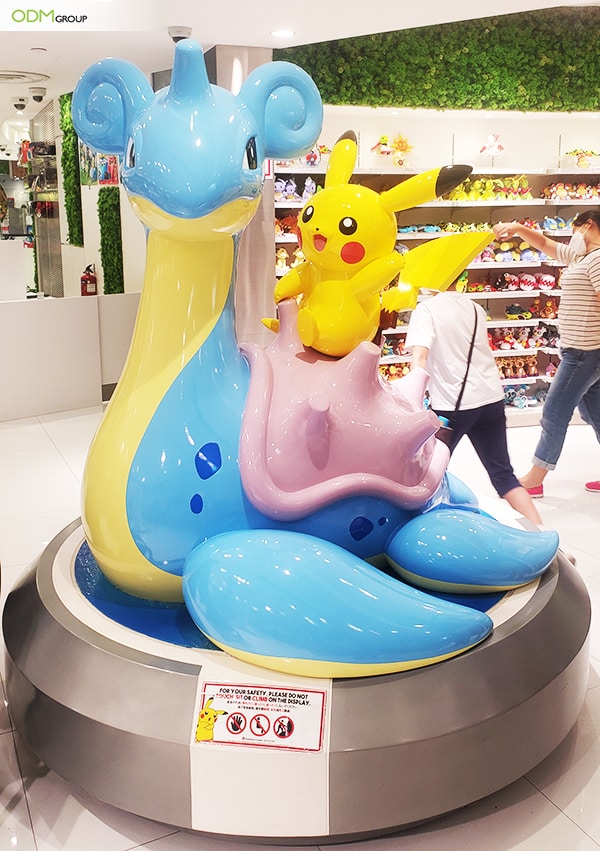
This Pokémon haven our team saw at Changi Airport, Singapore showed us just how a product licensing agreement with its company would go.
Merchandise Ideas For Your Next Product License Agreement
Custom Water Bottle With Logo
A water bottle might be widely used as a promotional product but for good reason. It has a lot of space for creatively advertising your brand.
In addition to that, it can be shaped according to what will best represent your business. It is also practical and used every day.
If you’re looking to market to active and athletic people, kids or teens, a custom water bottle with logo will largely benefit you.
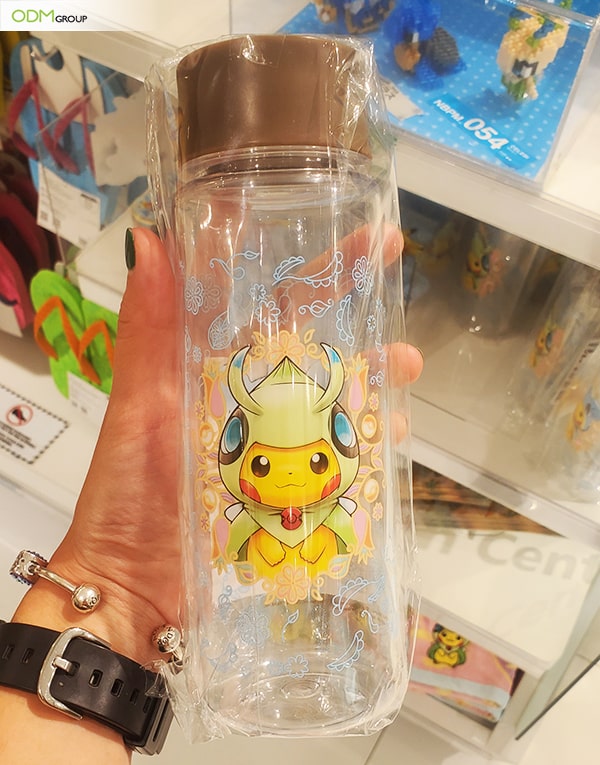
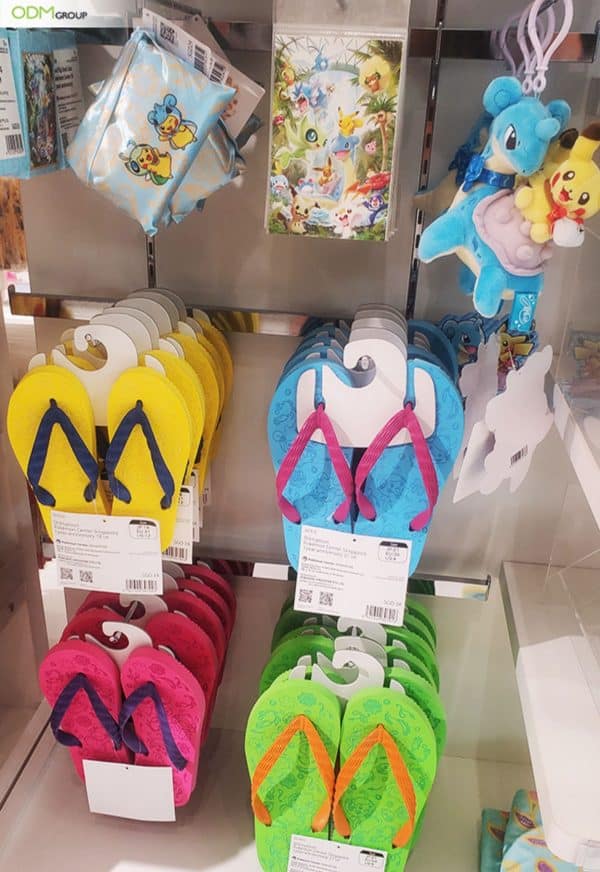
Branded Slippers
Always ready to accompany people anywhere and everywhere, branded slippers can go a long way.
The wide insole can serve as your brand’s canvas. Its straps also allow for an inventive brand logo or character.
Branded slippers are great merchandise for all ages. It can instantly create an emotional connection with any customer.
Bespoke Crockery
Dinnerware is an everyday tool for everyone and bespoke crockery would put your business in front of people regularly.
It can be made from a variety of materials such as plastic and ceramic, crockeries give a lot of leeway for creativity. You can be as subtle, or as conspicuous.
If you’re looking for durable promotional merchandise that would advert your business regularly for a long time, bespoke crockery is for you.
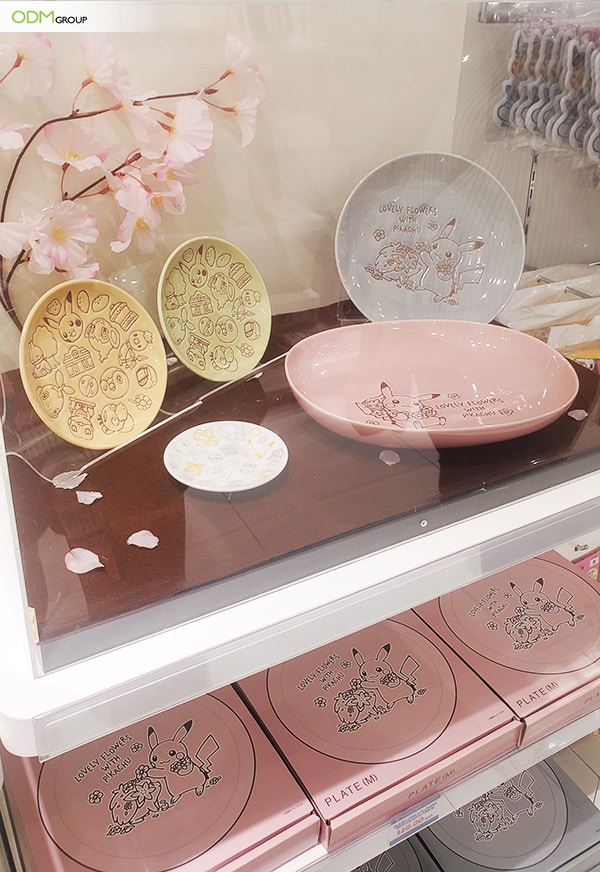
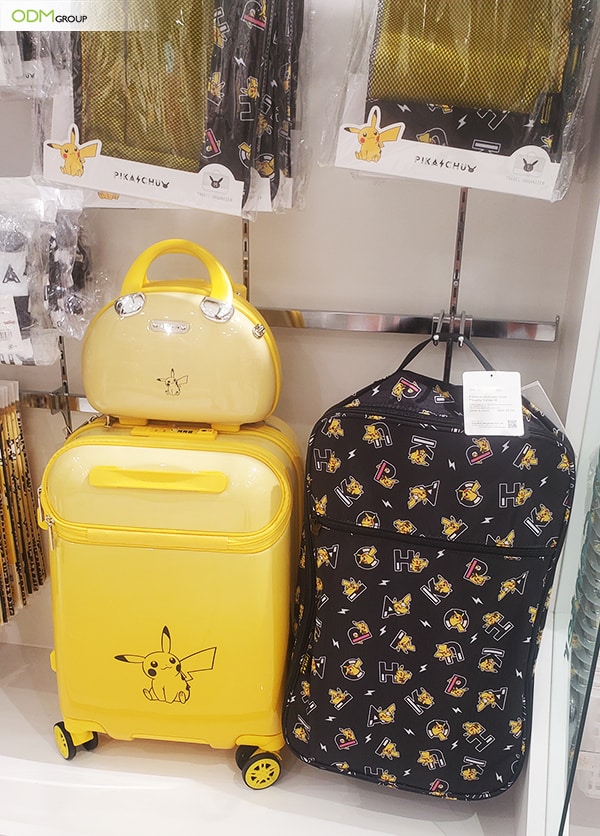
Branded luggage says a lot about the people carrying them. Much like branded tote bags, custom luggage enable people to carry something they can identify with.
Aside from utility, luggage is a premium merchandise people get for the emotional connection they establish with it. It also has a lot of space to customize, from the outside to its inside.
So, it’s your best bet if you’re looking to advertise in different luxury places. The more people who uses it travel, the more you get brand exposure.
More Blogs about Brands Under Product Licensing Agreements:
Check out how The Pokémon Company utilised and marketed their pen brand licensing from a German pen manufacturer, Lamy.
Doraemon took centre stage in a collaboration with Yi Fang Taiwan Fruit Tea to produce novelty items that range from branded cooler bags to promotional coin purses. Read more details below:
While businesses get a lot of advantages from using prominent names in marketing, read how a licensor like Disney Company also gets a fair share in the merchandise licensing agreement.
With #OOTD Mix & Match Fashion Bags, 7-Eleven and Snoopy made a buzz in Hong Kong through limited-edition merchandise.
Star Wars is another franchise that has a solid market with purchasing power all over the world. In this blog, we looked at businesses leveraging their popularity.
Overall,
A product licensing agreement can be very beneficial to your business if you take precautionary measures against the risks. After all, a collaboration with another brand could boost sales, increase brand visibility and reach a wider market. Proper preparation can outweigh the risks.
Working with some of the known brands and businesses internationally, ODM can guarantee you we work for quality. Specializing in the customization of promotional products, we have a group of talented creatives, Mindsparkz, that will work closely with you from brainstorming to sourcing and production.
Moreover, we also offer services like POS display designs, corporate giveaway ideas and gift with purchase. Contact us today!















